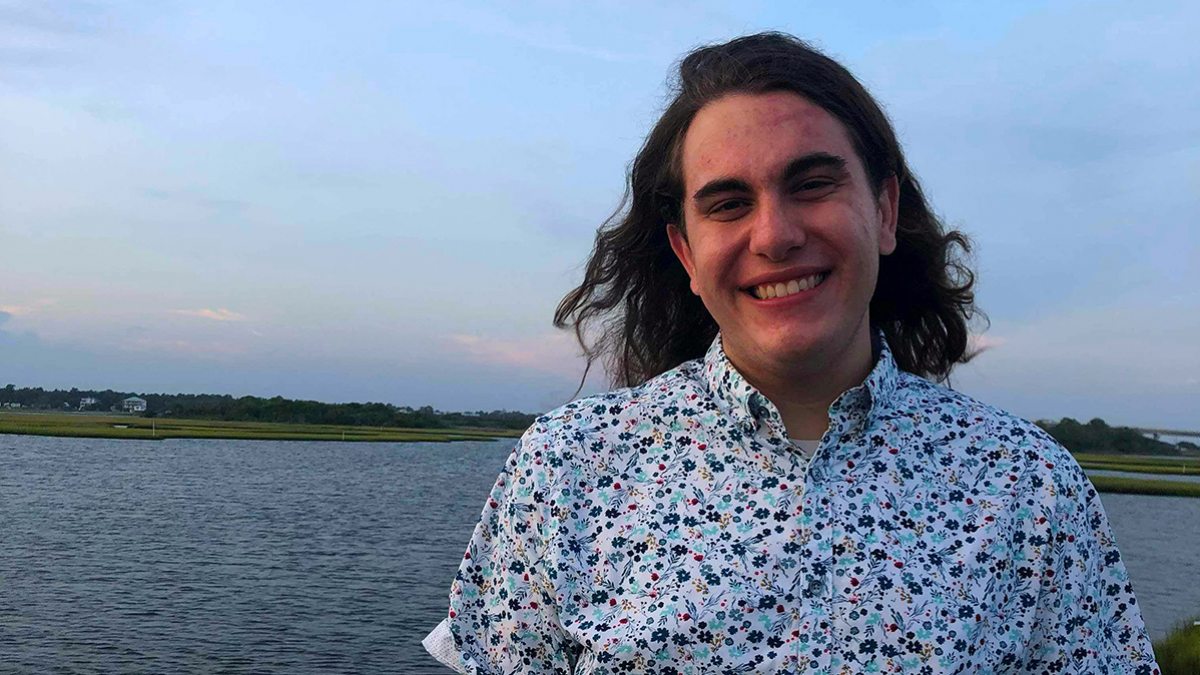Junior Joshua Massey named a Beinecke Scholar
Beinecke Scholars are considered for superior strength of character, intellectual ability and sense of purpose. The scholarship program provides $34,000 to support graduate education.

Carolina junior Joshua Massey was recently selected for the prestigious Beinecke Scholarship, which is awarded each year for the graduate education of young men and women of exceptional promise.
The Beinecke Scholarship provides $34,000 to support graduate education. Students receive an initial $4,000 during their senior year and the remaining $30,000 is distributed within a two-to five-year period while the student completes graduate studies. Beinecke Scholars are considered for superior strength of character, intellectual ability and sense of purpose. The Beinecke Scholarship Program was established in 1971 by the board of directors of the Sperry and Hutchinson Company to honor Edwin, Frederick and Walter Beinecke.
Originally from Denver, North Carolina, Massey is double majoring in American studies and English/comparative literature, and minoring in art history. His interest in material culture has served as the intellectual foundation for his work at Carolina and later inspired other academic interests in African American art and expressive culture, poetics and semiotics, literature and literary studies, and music.
During his first year at Carolina, Massey volunteered as a student guide at the Ackland Art Museum, where he developed an object-based tour, “Masks and Their Manifestations in Art.” Massey conducted research on the collection and workshopped best practices in object-based pedagogy.
In 2019, Massey was one of 35 honors students selected to study in London. His research project for the semester revolved around a Renaissance saltcellar he encountered on his first visit to the British Museum. He explored the material properties and utilitarian, social and cultural functions of this type of decorative object by independently arranging site visits to study all the extant 16th-century saltcellars now in London.
After returning to Chapel Hill from London, Massey began working on the first collection of spoken-word poetry by American artist, musician and poet Lonnie Holley. Holley’s spoken-word poetry, spanning nearly four decades, traverses genre and media. Holley’s work fostered Massey’s interest in poetics and the materiality of language, and forms the foundation for his prospective honors thesis, “The Music Lives After the Instrument is Destroyed,” which will focus on the play between language and image in Holley’s visual art and poetry. Massey’s work on the collection of Holley’s spoken-word poetry, “Wordsmithing,” is likely to be published in 2022.
Massey’s project is a freestanding element in a larger initiative centered on a planned spring 2022 exhibition, “The Unfinished Business of Unsettled Things: Art from an African American South,” at the Ackland Art Museum.
Massey is passionate about material culture and committed to its study at the graduate level. He plans to enroll in a graduate program focusing on material culture studies, combining research interests in poetics, art, language, semiotics of landscape, psychogeography, folklore, history and aesthetics. After graduate school, he plans to enter academia as a lecturing professor or a professor of the practice working with art and his other intellectual interests either in the classroom or in the museum space.




